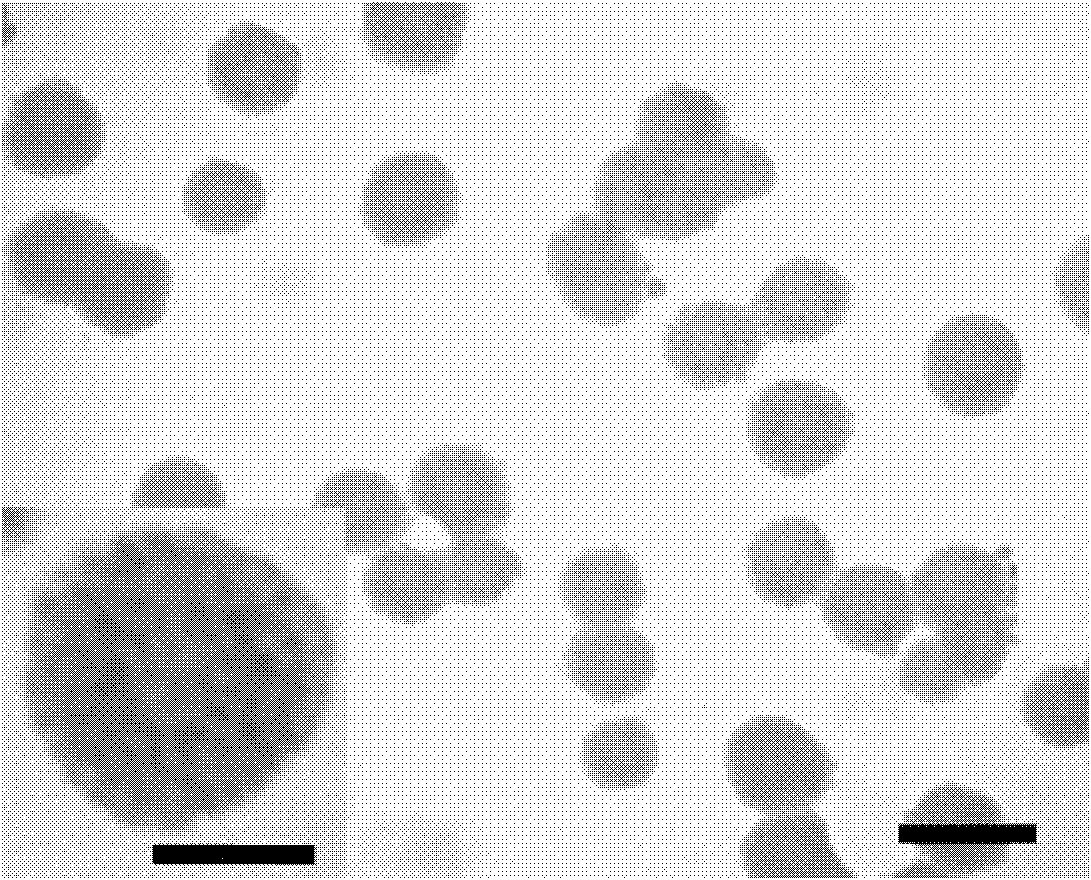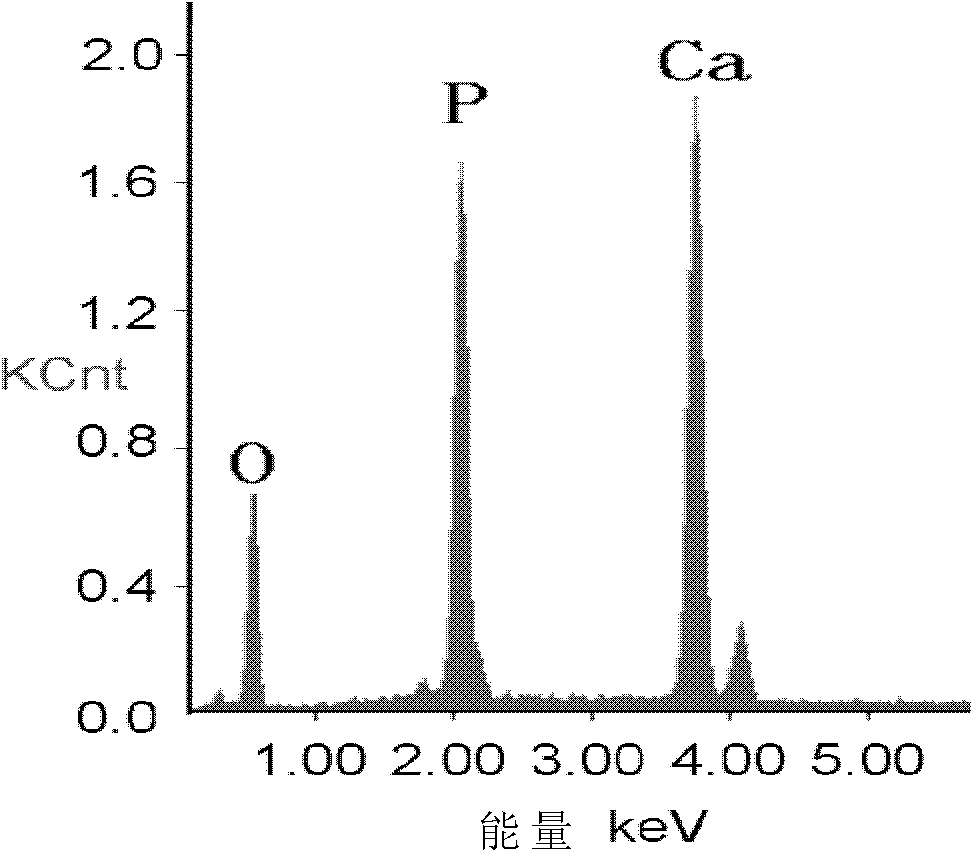Virus with surface modified with calcium phosphate and preparing method of virus
A calcium phosphate and virus technology, applied in botany equipment and methods, biochemical equipment and methods, pharmaceutical formulations, etc., can solve problems such as the impact of adenovirus titers and clinical effects, and achieve enhanced transfection efficiency and improved transfection efficiency. Dyeing efficiency, the effect of simple method
- Summary
- Abstract
- Description
- Claims
- Application Information
AI Technical Summary
Problems solved by technology
Method used
Image
Examples
Embodiment 1
[0042] Embodiment 1, in situ mineralization of adenovirus
[0043] Schematic diagram of the flow chart for the in situ mineralization of adenovirus, see figure 1 .
[0044] 1. In situ mineralization of Ad5-EGFP virus
[0045] 1. Adjust the pH of the Ad5-EGFP virus solution to 7.2 with ammonia water. At this point, the surface Zeta potential of the virus particles was measured and found to be -28mV. It has been determined that the surface Zeta potential of virus particles in the pH range of 6.8-8.0 is negatively charged, which can adsorb cations.
[0046] 2. The virus liquid obtained in 10mL step 1 (2×10 8 PFU / ml) by adding CaCl 2 , so that CaCl 2 The final concentration of the solution reached 20mM, adjusted the pH to 7.2 with ammonia water, and stood at 4°C for 12 hours (the purpose is to make Ca 2+ Fully enriched around the virus particles); Slowly add 10mL 20mM Na 2 HPO 4 aqueous solution and keep stirring, adjust the pH to 9.0 with ammonia water, and stir at 4°C f...
Embodiment 2
[0059] Embodiment 2, the dot hybridization experiment of virus after mineralization
[0060] Anti-adenovirus hexon (Hexon) monoclonal antibody: purchased from Abcam, article number ab8249, name Mousemonoclonal to Adenovirus hexon.
[0061] Alkaline Phosphatase-conjugated goat anti-mouse IgG: purchased from Jackson, Cat. No. 515-055-003, name AlkalinePhosphatase-conjugated AffiniPure Sheep Anti-Mouse IgG (H+L).
[0062] BCIP / NBT (dye solution): purchased from Sigma, Cat. No. B1911-100ML.
[0063] Adenovirus mouse polyclonal antibodies were prepared by the following method: select 4-week-old Balb / C female mice, dilute the Ad5-EGFP virus solution in 100 μl PBS buffer, and immunize by subcutaneous multi-point injection; the immunization process is as follows: initial immunization, Each mouse was injected with 200 μl of the dilution of the virus solution (containing 1.28×10 7 PFU); booster immunization once every 2 weeks, a total of 3 times of booster immunization, and each mouse...
Embodiment 3
[0087] Example 3, the transfection efficiency of the virus at the cellular level and in vivo after mineralization
[0088] 1. Transfection efficiency of Ad5-Luc2-CaPi virus at the cellular level
[0089] The Ad5-Luc2-CaPi virus liquid prepared in Example 1 and the Ad5-Luc2 virus liquid were carried out to the following experiments respectively:
[0090] 1. Infect HEK293 cells with virus solution at doses of infection (MOI) of 100, 10, and 1, respectively, and collect cells at 12h, 24h, 48h, and 72h after infection.
[0091] 2. Lyse the cells collected in step 1 in the cell lysate for 15 minutes, and centrifuge to get the supernatant.
[0092] 3. Take the supernatant from step 2, and use NanoDrop 1000 to detect the protein content, the unit is mg.
[0093] 4. Add the supernatant from step 2 to the three auxiliary wells of a fluorescence-specific 96-well plate, 20 μl per well, and place it in a GloMax96 microplate luminescence detector. Add 100 μl luciferase substrate to each ...
PUM
 Login to View More
Login to View More Abstract
Description
Claims
Application Information
 Login to View More
Login to View More - R&D
- Intellectual Property
- Life Sciences
- Materials
- Tech Scout
- Unparalleled Data Quality
- Higher Quality Content
- 60% Fewer Hallucinations
Browse by: Latest US Patents, China's latest patents, Technical Efficacy Thesaurus, Application Domain, Technology Topic, Popular Technical Reports.
© 2025 PatSnap. All rights reserved.Legal|Privacy policy|Modern Slavery Act Transparency Statement|Sitemap|About US| Contact US: help@patsnap.com



